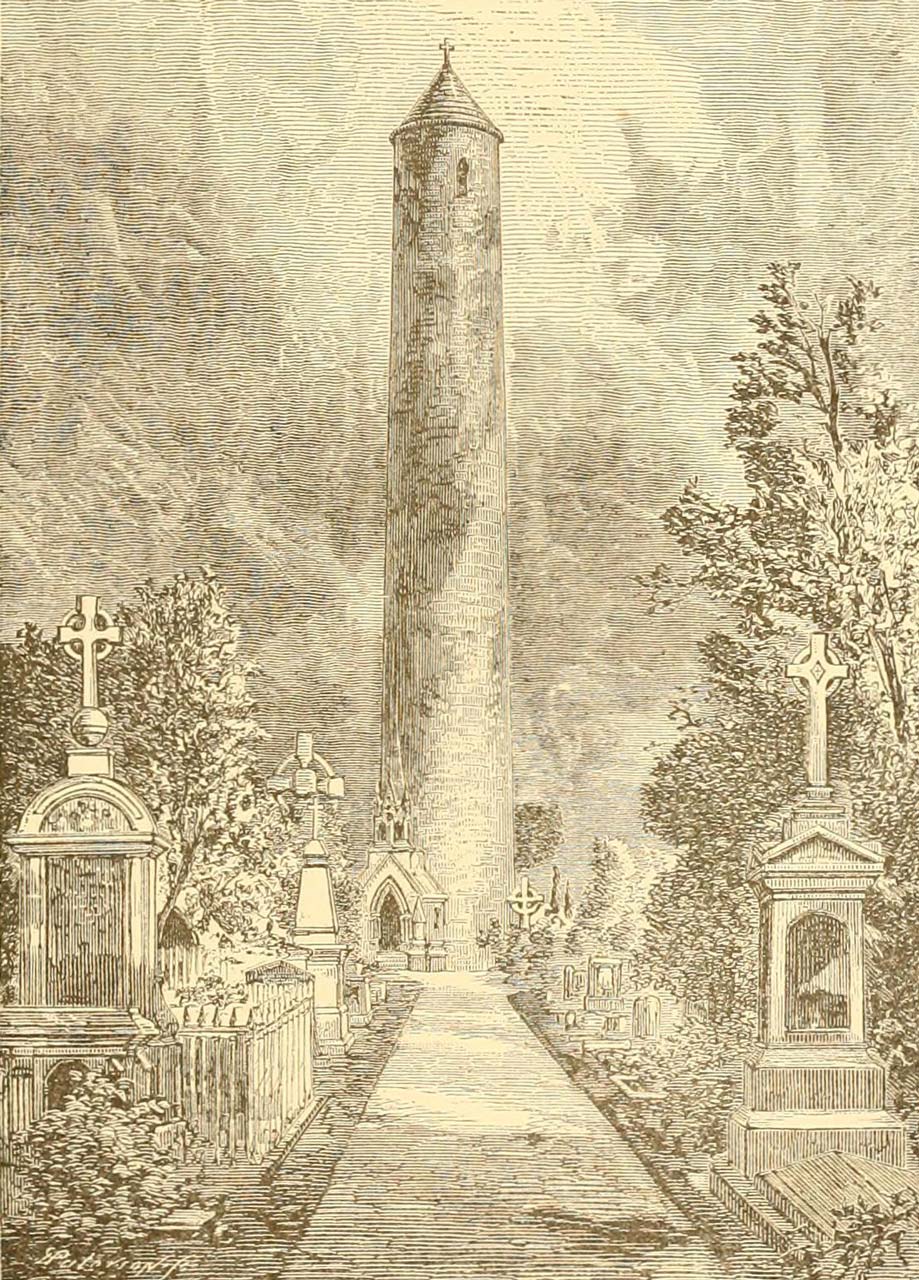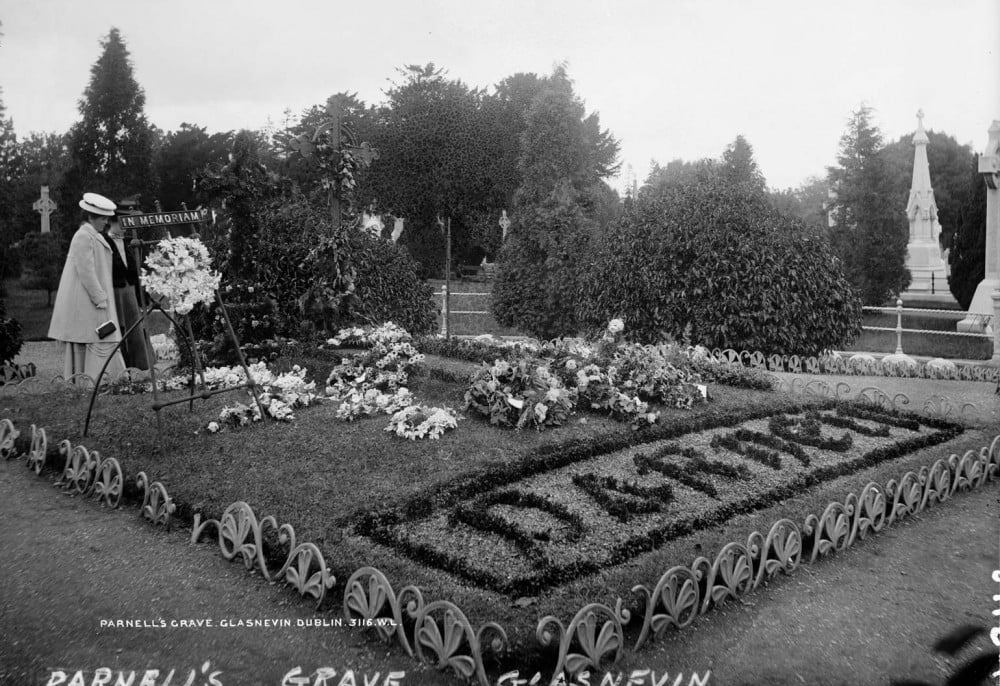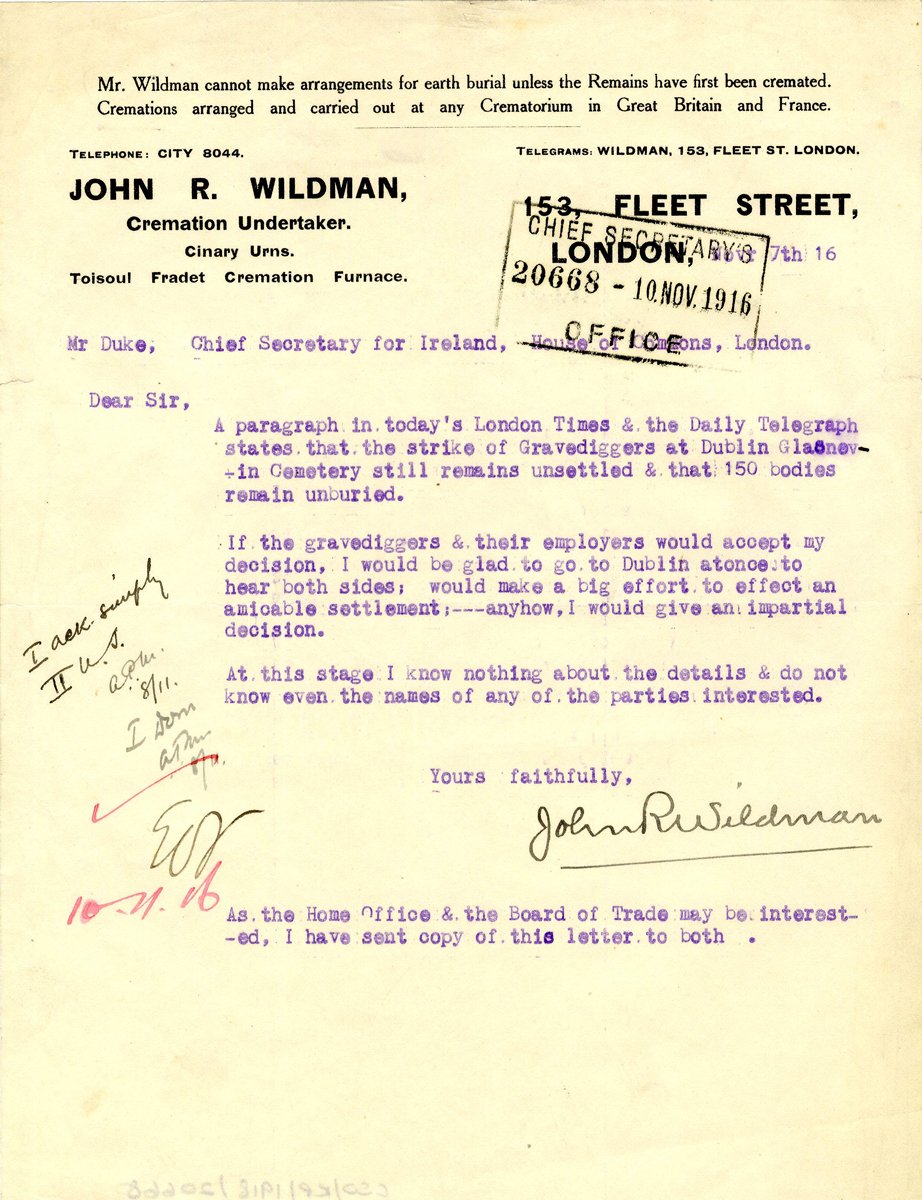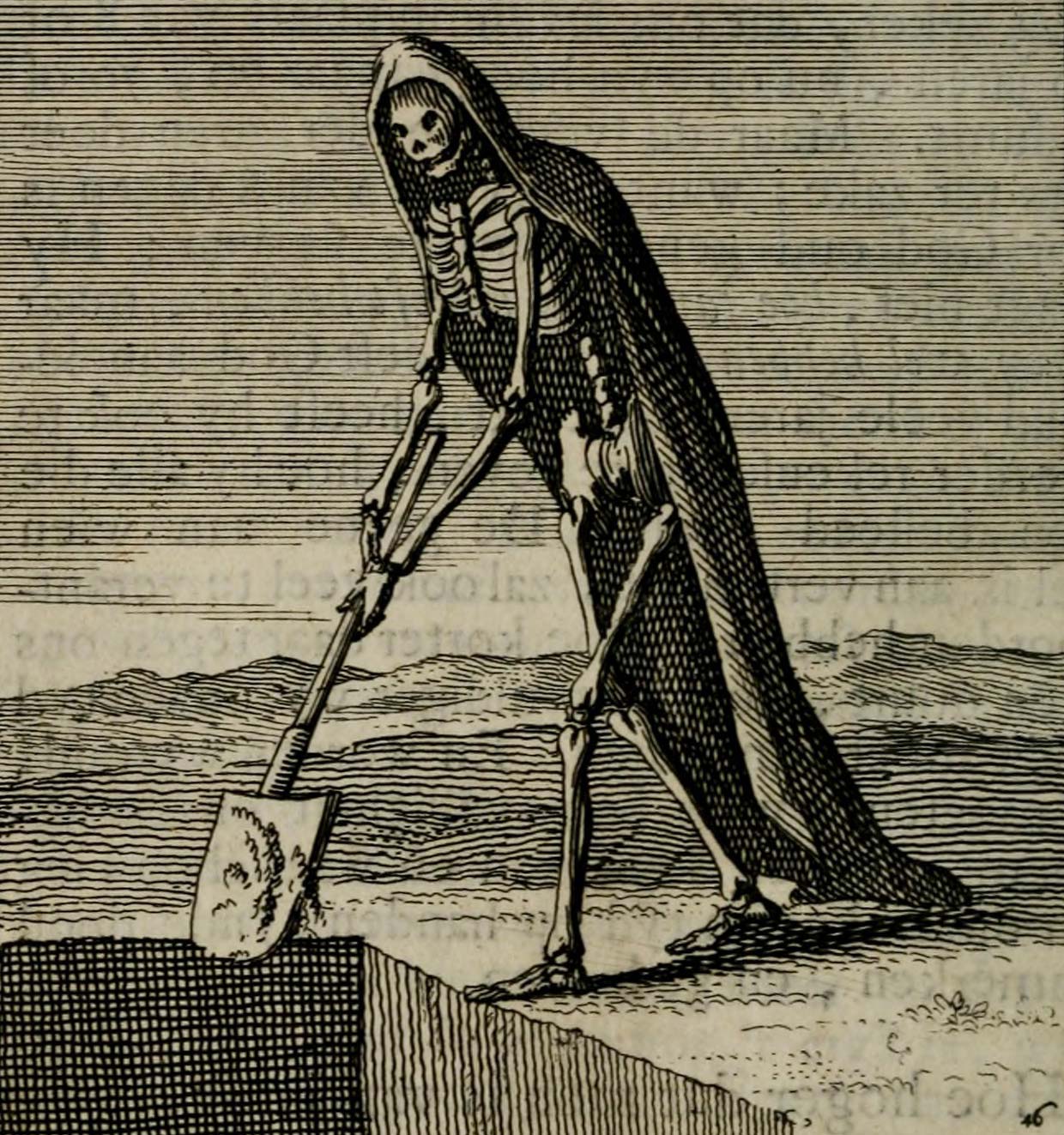Gravediggers on strike at Glasnevin
Dublin, 10 November 1916 - The strike at Glasnevin Cemetery has worsened in recent days amid no signs of a resolution.
Of 48 cemetery workers in Glasnevin, 32 are on strike, and the remainder continue to work. Among the strikers are long-serving employees, some of whom have worked up to 26 years in the graveyard.
By the end of last week it was claimed there were some 150 bodies left unburied in the cemetery, although other sources put the figure at around 30.

|

|
Left: The round tower over Daniel O'Connell's tomb. Right: The tomb of Charles Stewart Parnell. (Images: 'Treasury of Irish eloquence, being a compendium of Irish oratory and literature' [1882] via the Internet Archive. National Library of Ireland, L_ROY_03116)
The strikers’ demands include an increase of wages, including a bonus for Sunday work and hazard pay for exhuming corpses that have been buried for a long time. They also ask that when a grave has to be sunk 6 feet or deeper another man be put upon the bank for protection. Finally they request that none of the strikers be victimised.
The gravediggers insist that they are not being paid a proper wage despite the fact that the cemetery makes a lot of money.

A letter from John Wilderman, an undertaker, to the Chief Secretary's office about the dispute in Glasnevin. He is offering to go to Dublin and help settle the disagreements between the two parties. (Image: National Archives of Ireland, CSO RP 1916 20668)
[Editor's note: This is an article from Century Ireland, a fortnightly online newspaper, written from the perspective of a journalist 100 years ago, based on news reports of the time.]





















